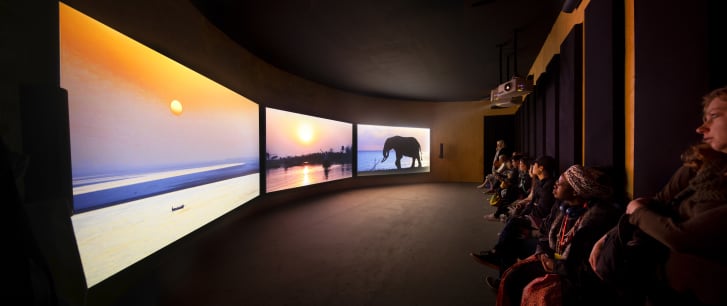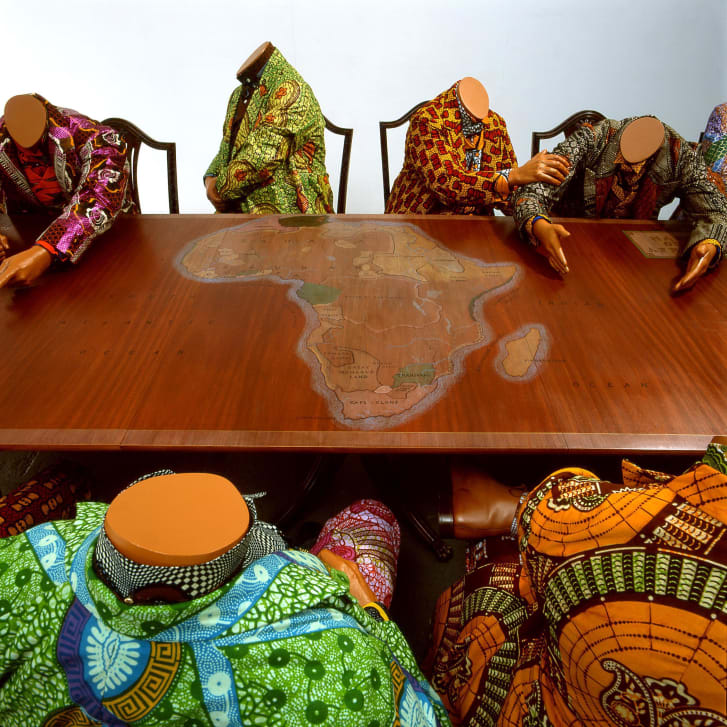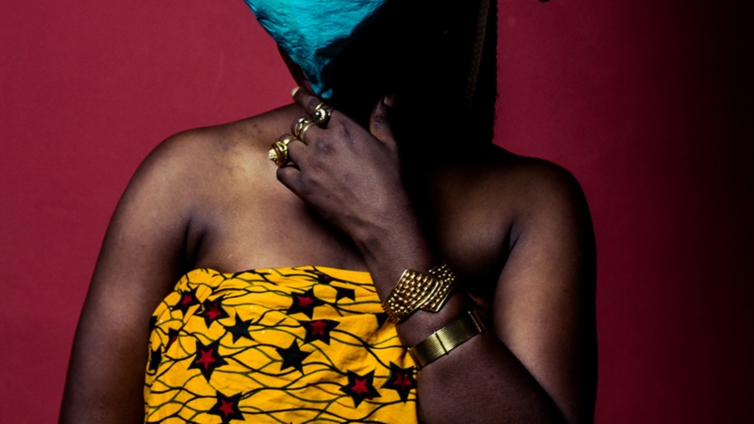Ekow Eshun is a British writer, broadcaster, and curator. All opinions expressed in this article belong to the author.
African art is having a vogue moment. People are very interested in it, but there's still a sense of Africa and African art as something of an exotic "other" that sits on the periphery and not really at the center of dialogues and debate.
However, it's more important than ever to assert the position of Africa as a place that has something significant to say.
There's a historical tendency to imagine Africa on the edge of history, cultural conversation, and global affairs.
But across the continent, there's a powerful interchange of ideas -- about who we are and how we live -- that hasn't been truly globally recognized.That's changing.
This year, Ghana made its debut at the Venice Biennale, the art world's most important event, with an all-star pick of artists. Moments like this shift the narrative, from a position of exceptional otherness to a place where African artists are fully engaged in the dialogue of contemporary art.

The work of artists like British-Nigerian installation artist Yinka Shonibare and Accra-born filmmaker John Akomfrah show a fascination with narratives of history, memory, place, identity, and race.
They're interested in telling and retelling the story of the role of Africa and African people on the international stage.
At the heart of their search is a desire to present Africa in a fresh way, breaking down prevalent stories and fictions to tell new stories -- of possibility and openness about Africa.
It's not the role of artists -- whether from music, design, architecture, or fashion -- to portray an authentic version of Africa.
Their role is to expand our expectations and our ideas of what Africa can be.
Africa is a place of multiplicity. You can stand on a street corner in any given city -- in Dakar, Lagos, or Accra, for example -- and you see different influences, cultures, colors and patterns that come from all over the world.
That's what you hear in the music. That's what you see in the films. That's what you see referenced in art as well.
Africa isn't a separate part of the world.
Some people argue we should not look at African artists as artists from Africa, that we should think about them as artists of the world. Personally, I don't buy that.

I think the mistake we make is to assume that if you're an artist from Africa, your job is to faithfully represent Africa to the exclusion of anything else.
Your job, as it were, is to be an African artist, which is just to say that you have the space, the liberty, the luxury, the possibility to draw from Africa and to make of that lineage and that heritage what you will, and to present Africa not as a fixed proposition, but as a state of possibility.
Latest Stories
-
Woman dies after being set on fire on NYC subway
1 hour -
Elon Musk’s curious fixation with Britain
1 hour -
EBID wins the Africa Sustainability Award
3 hours -
Expansion Drive: Takoradi Technical University increases faculties
7 hours -
SHS heads demand payment of outstanding funds before reopening of schools
8 hours -
We thank God for the 2024 general elections – Akufo-Addo
8 hours -
Coconut Grove Beach Resort marks 30 years of excellence with memorable 9 lessons & carols service
8 hours -
WAFU B U-17 Girls’ Cup: Black Maidens beat Nigeria on penalties to win inaugral tournament
9 hours -
Real Madrid beat Sevilla to keep pressure on leaders Atletico
10 hours -
Liverpool put six past Spurs to go four points clear
10 hours -
Manchester United lose 3-0 at home to Bournemouth yet again
10 hours -
CHAN 2024Q: ‘It’s still an open game’ – Didi on Ghana’s draw with Nigeria
10 hours -
CHAN 2024Q: Ghana’s Black Galaxies held by Nigeria in first-leg tie
11 hours -
Dr Nduom hopeful defunct GN bank will be restored under Mahama administration
12 hours -
Bridget Bonnie celebrates NDC Victory, champions hope for women and youth
12 hours

